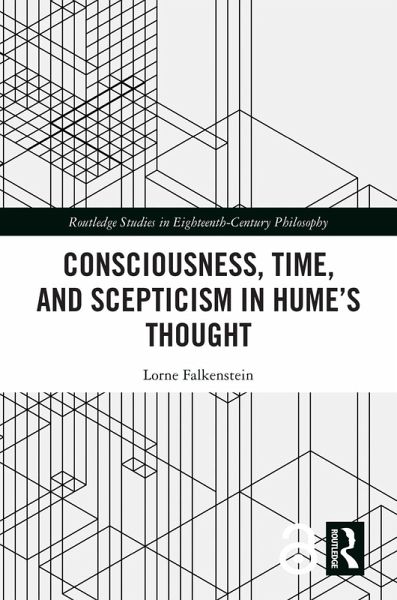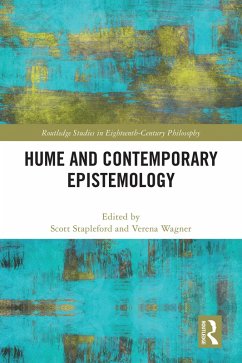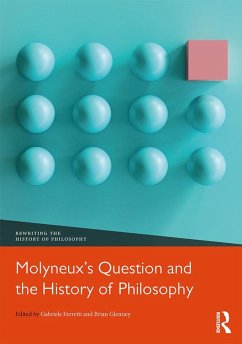
Consciousness, Time, and Scepticism in Hume's Thought (eBook, ePUB)
Versandkostenfrei!
Sofort per Download lieferbar
39,95 €
inkl. MwSt.
Weitere Ausgaben:

PAYBACK Punkte
20 °P sammeln!
David Hume's philosophical work presents the reader with a perplexing mix of constructive accounts of empirically guided belief and destructive sceptical arguments against all belief. This book reconciles this conflict by showing that Hume intended his scepticism to be remedial. It immunizes us against the influence of "unphilosophical" causes of belief, determining us to proportion our beliefs to the evidence.In making this case, this book develops Humean positions on topics Hume did not discuss in detail but that are of interest to contemporary philosophers: consciousness and the unity of co...
David Hume's philosophical work presents the reader with a perplexing mix of constructive accounts of empirically guided belief and destructive sceptical arguments against all belief. This book reconciles this conflict by showing that Hume intended his scepticism to be remedial. It immunizes us against the influence of "unphilosophical" causes of belief, determining us to proportion our beliefs to the evidence.
In making this case, this book develops Humean positions on topics Hume did not discuss in detail but that are of interest to contemporary philosophers: consciousness and the unity of consciousness, temporal experience, visual spatial perception, the experience of colour and other qualia, objective experience, and spatially extended minds. It also challenges currently accepted interpretations of Hume's views on the finite divisibility of space and time, vacuum, the duration of unchanging objects, and identity over time. It deals with criticisms of Hume that were raised by his contemporaries, notably by Thomas Reid, draws attention to earlier seventeenth- and eighteenth-century work that has bearing on the interpretation of Hume's thought, and compares Hume's achievements with those of later nineteenth-century psychologists and philosophers.
Consciousness, Time, and Scepticism in Hume's Thought will appeal to scholars and advanced students interested in Hume, history of philosophy, and early modern theories of perception, time, and consciousness.
The Introduction and Chapter 1 of this book are freely available as downloadable Open Access PDFs at http://www.taylorfrancis.com under a Creative Commons Attribution-Non Commercial-No Derivatives CC-BY-NC-ND 4.0 license.
In making this case, this book develops Humean positions on topics Hume did not discuss in detail but that are of interest to contemporary philosophers: consciousness and the unity of consciousness, temporal experience, visual spatial perception, the experience of colour and other qualia, objective experience, and spatially extended minds. It also challenges currently accepted interpretations of Hume's views on the finite divisibility of space and time, vacuum, the duration of unchanging objects, and identity over time. It deals with criticisms of Hume that were raised by his contemporaries, notably by Thomas Reid, draws attention to earlier seventeenth- and eighteenth-century work that has bearing on the interpretation of Hume's thought, and compares Hume's achievements with those of later nineteenth-century psychologists and philosophers.
Consciousness, Time, and Scepticism in Hume's Thought will appeal to scholars and advanced students interested in Hume, history of philosophy, and early modern theories of perception, time, and consciousness.
The Introduction and Chapter 1 of this book are freely available as downloadable Open Access PDFs at http://www.taylorfrancis.com under a Creative Commons Attribution-Non Commercial-No Derivatives CC-BY-NC-ND 4.0 license.
Dieser Download kann aus rechtlichen Gründen nur mit Rechnungsadresse in A, B, BG, CY, CZ, D, DK, EW, E, FIN, F, GR, HR, H, IRL, I, LT, L, LR, M, NL, PL, P, R, S, SLO, SK ausgeliefert werden.













